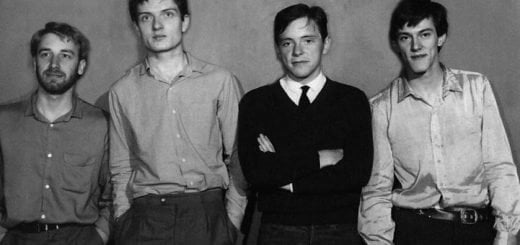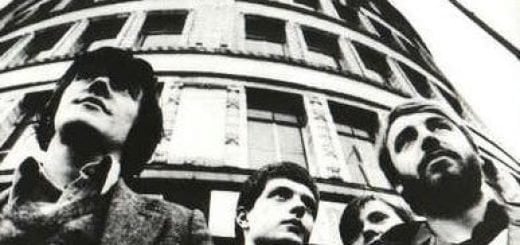The Eternal by Joy Division Lyrics Meaning – Unveiling the Depths of Post-Punk Melancholy
Lyrics
Praise to the glory of loved ones now gone
Talking aloud as they sit ’round their tables
Scattering flowers washed down by the rain
Stood by the gate at the foot of the garden
Watching them pass like clouds in the sky
Try to cry out in the heat of the moment
Possessed by a fury that burns from inside
Cry like a child, though these years make me older
With children, my time is so wastefully spent
Burden to keep, though their inner communion
Accept like a curse, an unlucky deal
Played by the gate at the foot of the garden
My view stretches out from the fence to the wall
No words could explain, no actions determine
Just watching the trees and the leaves as they fall
In the annals of post-punk history, few songs capture the haunting introspection and raw emotional bleed of Joy Division’s ‘The Eternal’. From the album ‘Closer’, released in 1980 just two months after the tragic passing of lead singer Ian Curtis, the track is a deep, mournful ode that layers its narrative in metaphor and introspection, compelling its listeners to confront the poignancy of loss and the imperfect art of remembrance.
Stripped of pretense, the somber keys and the monotonal delivery of Curtis’s vocals blend to create a chilling procession of sound that mirrors the lyrics’ funereal march. ‘The Eternal’ is more than a song; it is a visceral embodiment of grief, a poignant reflection on mortality, and a snapshot of the human condition viewed through the lens of Joy Division’s stark, minimalist sonic palette.
A Funeral Procession in Sound
The opening stanza of ‘The Eternal’ sets a scene of communal grief, hinting at the rituals that follow death—the ‘procession’ and ‘scattering flowers’ washed away by rain. These lines do more than paint a picture; they evoke the transient nature of life and the ceremonies we use to give it meaning. Joy Division employs these images to set the tone for the rest of the track, not just in words but in the very cadence of their music.
The bassline by Peter Hook and the atmospheric synths from Bernard Sumner serve as aural counterparts to the lyrics, moving with a leaden heaviness that feels as inevitable as the march of time. It’s this fusion of sound and storytelling that elevates ‘The Eternal’ into a legacy-defining anthem, showcasing the band’s ability to use minimalism to reveal deeper, universal truths.
Trapped in a Moment of Fierce Emotion
Curtis expresses an agonizing inability to articulate grief with ‘Try to cry out in the heat of the moment / Possessed by a fury that burns from inside.’ This potent confession reveals the tumultuous storm of emotions raging within. Joy Division’s exploration into these depths elevates the track from a mere song to a confessional booth, examining the sometimes uncontrollable nature of human feeling.
The fierce internal struggle conveyed in these lines speaks to the human experience of grief—its unpredictability, its intensity, and the challenge of trying to give it voice. ‘The Eternal’ thus serves as a canvas for Curtis’s internal cataclysm, set against the backdrop of the quiet observation put forth in the following verses.
Age and Lost Time: A Universal Human Woe
Reflecting on the passage of time and the associated regrets, ‘Cry like a child, though these years make me older / With children, my time is so wastefully spent’ delves into the singer’s resentment towards the fleeting nature of life and the disillusionment that comes with age. It’s an emotional acknowledgment of the time that slips away and the painful realization that not all of it is spent as one might wish.
These lines illuminate Joy Division’s knack for tapping into the worries that plague us all—aging, wasted moments, the sorrow of what might have been. Curtis’s words resonate with a universal ache, a shared human dread, making ‘The Eternal’ a timeless hymn to the disquieted soul.
Unraveling the Song’s Hidden Heart
Hidden beneath the monochromatic tones and Curtis’s stoic deliverance lies a resonating message of human connection and the spiritual search for meaning. ‘Burden to keep, though their inner communion / Accept like a curse, an unlucky deal’ can be interpreted as an existential yearning for a deeper understanding and the shared burden of existence we silently acknowledge in each other.
The ‘inner communion’ suggests a spiritual or emotional bond that persists despite life’s difficulties, hinting at the complex relationship we have with our sense of self and the interwoven threads of communal experience. This cryptic core of ‘The Eternal’ may very well be its call to find solace in the collective human journey, despite the sorrows we individually bear.
Leaves Fall, Memories Fade: Embracing the Inevitable
In the closing lines, ‘No words could explain, no actions determine / Just watching the trees and the leaves as they fall,’ there is a resignation to the enigmatic forces of nature and life. Curtis wraps listeners in a shroud of meditative tranquility, infringing upon the notion that some elements of existence are beyond our realm of control or comprehension.
The melancholy beauty captured in the imagery of falling leaves – a metaphor for passing time and dying memories – taps into the core theme of ‘The Eternal’: acceptance. Acceptance not only of death and the limitations of our human condition but also of the peace that can be found in surrendering to life’s impermanent nature. Through this lens, ‘The Eternal’ teaches its audience the power of letting go and finding beauty in the ephemeral cycle of life and loss.








